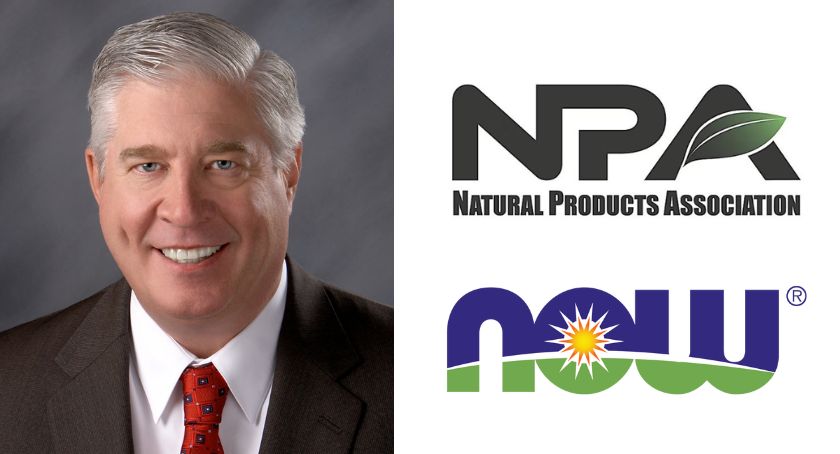Columns
Capitol Comments: The Cholestin Case: The Ongoing Saga
Pharmanex loses major battle in cholesterol-lowering ingredient war.

By: Todd Harrison

In the ongoing saga of Pharmanex, Inc. v. Shalala (Case No. 2:97CV262K), the FDA scored a major victory in the U.S. District Court for the District of Utah. As you may remember, this court handed FDA a major defeat a few years back when it held that red yeast rice that has been standardized to have sufficiently high levels of lovastatin was a dietary supplement because it was not identical to Merck’s cholesterol lowering drug Mevacor‚ (Mevacor’s active drug ingredient “ADI” is lovastatin). The U.S. Court of Appeals for the 10th Circuit then reversed the district court’s decision. On remand, the FDA has successfully argued that red rice yeast rice as produced by Pharmanex was a drug and not a dietary supplement. It is difficult to judge the impact of the district court’s decision. However, a review of the basic concepts in the case may aid future decisions on whether a company should move forward with a standardized form of a supplement that did not previously exist before the standardized component’s approval as an ADI.
The Pharmanex case represented the first time, under DSHEA, that a court was presented with the question as to whether a product being marketed as a dietary supplement was indeed a dietary supplement or just a drug in disguise. More specifically, the case considered whether a specially processed form of red yeast rice could be marketed as a dietary supplement when its active component was also an ADI that had been approved by FDA as the active ingredient in a cholesterol-lowering drug product. There is little doubt that Pharmanex could have marketed red yeast rice as a dietary supplement if it had simply encapsulated the common form of red yeast rice. However, FDA argued that this red yeast rice was different because Pharmanex went a step further by selecting a strain of red yeast rice that would produce lovastatin on a consistent basis. Moreover, the manufacturing process was standardized to ensure that the red yeast rice would produce high levels of lovastatin. It is this standardization process that formed the crux of FDA’s problems with Pharmanex’s red yeast rice.
As we have discussed previously in this column, DSHEA permits an FDA-approved ADI to be marketed as a dietary supplement if the ADI was marketed as a dietary supplement or food prior to its approval as a dietary supplement. Thus, the key in the Pharmanex case was whether Pharmanex’s red yeast rice was marketed as a dietary supplement or as a food prior to lovastatin’s approval in 1987. There is little dispute that red yeast rice was commercially available prior to 1987 and FDA did not argue so. Rather, FDA focused in on whether its component part, lovastatin, was marketed as a food prior to 1987. Basically, it was FDA contention that red yeast rice was not the dietary ingredient, but merely the source of the lovastatin, which was the actual dietary ingredient. However, because lovastatin can arguably be found in trace amounts in certain foods, including red yeast rice and oyster mushrooms, FDA had to take its argument one step further and argue that trace amounts of lovastatin found in foods prior to 1987 were insufficient to permit its marketing as a dietary supplement.
From a public policy perspective, FDA’s argument does make some sense. Otherwise, companies could take the natural analog of any ADI, standardize it and market it as a dietary supplement without FDA approval. In essence, the company would be able to sell a generic drug as a dietary supplement. In its initial decision, the district court did not address this issue. Rather, the district court erroneously held that a dietary supplement that contains an ADI as one of its constituents could be marketed as a supplement as long as it was not identical to the FDA-approved drug product, i.e., all the ingredients in the dietary supplement were not the same as all the ingredients, active and inactive, in the drug product. This rationale was rejected by the 10th Circuit and on remand the district court addressed this issue.
On remand, Pharmanex argued that it was arbitrary and capricious for FDA to focus in on lovastatin as the dietary ingredient rather than red yeast rice. Unfortunately for Pharmanex, the district court was required to give deference to FDA’s decision to focus on lovastatin. Once that hurdle was established, it became rather easy for the court to decide that FDA was correct and to hold that Pharmanex’s red yeast rice product was a drug and not a dietary supplement.
The initial consequences of this decision, however, would appear to be limited. Indeed, this decision should only impact those products that have active constituents that are presently being marketed as FDA-approved drugs and those components that have never been actively marketed as dietary ingredients or as a components of food. Thus, this decision is probably limited to a food that has a component part that is presently undergoing substantial clinical investigation (which is known to the public) or is an FDA-approved drug and the manufacturing process is intended to produce a higher level of the component part than would normally be found in the food. This decision could also have applicability to “new” dietary ingredients because it is possible that there may be constituents of the “new” dietary ingredient that are presently being researched as a possible drug in the future. However, the Pharmanex decision would still be limited to constituent parts that are being standardized at levels higher than would naturally have been found in the “new” dietary ingredient. Of course, the Pharmanex decision would not be a hindrance to the marketing of any dietary ingredient that has been standardized to have a higher level of a constituent part as long as that particular constituent part had been actively marketed as part of the dietary supplement prior to the new drug approval or the initiation of substantial clinical investigation.
Todd A. Harrison is a senior attorney with the law firm Buchanan Ingersoll, P.C.,Washington D.C. He advises food and drug companies on a variety of FDA and FTC matters, with an emphasis on dietary supplement, functional food, biotech, legislative, adulteration, labeling and advertising issues. He can be reached at Buchanan Ingersoll, 1776 K Street, N.W., 8th Floor, Washington D.C. 20006; 202-452-7319; Fax: 202-452-6057; E-mail: harrisonta@bipc.com.




















